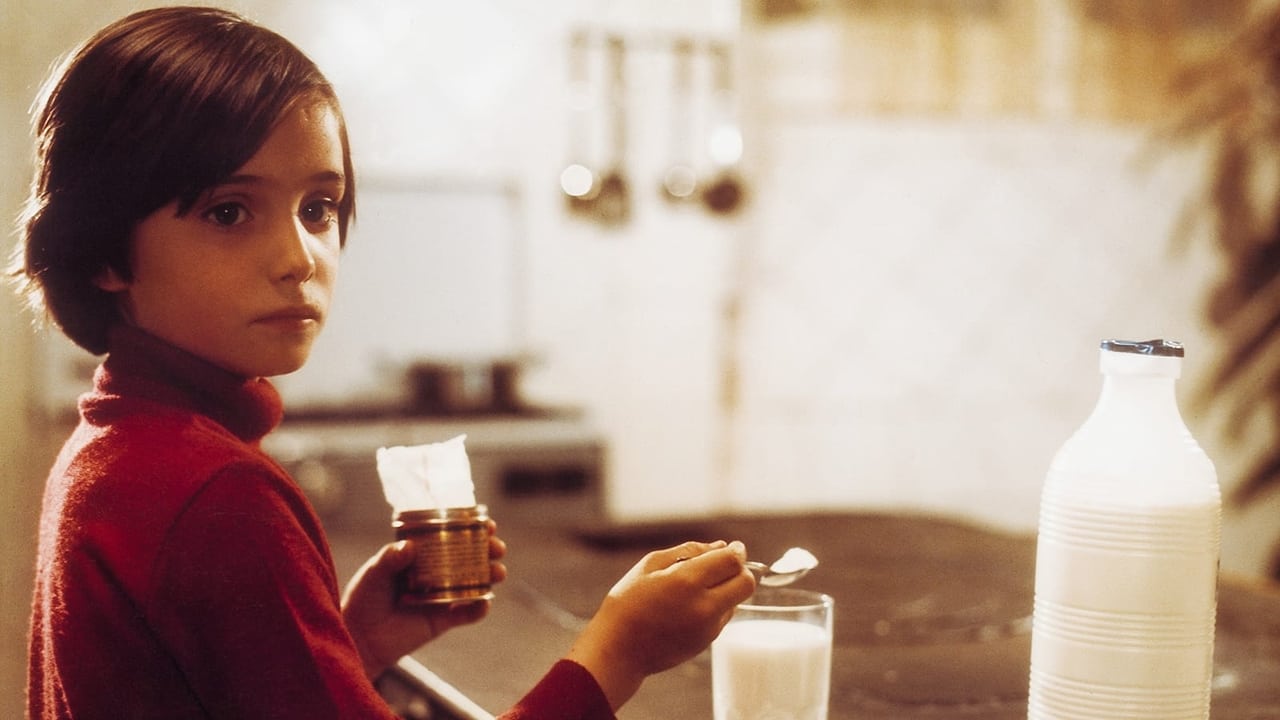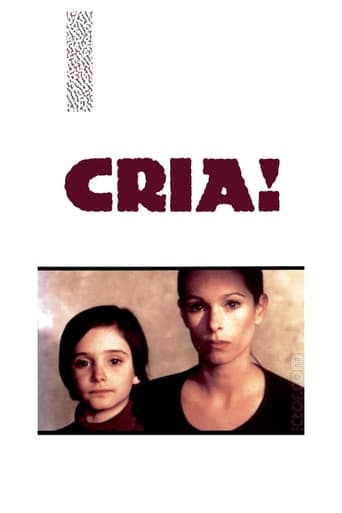

Now I found this movie completely in accidnet. I was originally looking for a song from How I Met Your Mother and I found the song in a video with clips from this movie. After watching the video I knew I had to watch it. I did some research first to see if it was worth my time. And it was. From what I found many had said it was just a drama movie and what not. Until I watched the movie and realized how deep it actually is. While watching it I realized the little girl was curious about death. Another thing I didn't know was that the entire movie was a flashback which makes it much better too. The way she stands there and looks at everything going on in the world she didn't acknowledge any of it until she was older and retelling of that summer. Now the movie is in Spanish but there is an English version on YouTube if you look up the English title "Raise Ravens" you can find it. Just a warning that the English voice over isn't completely correctly translated and the voices don't match the characters well at all but there isn't that much dialogue in the movie anyways so it's easy to get over. But if you get the chance I say watch this movie. It will stick with you like it has with me.
... View MoreThis Spanish film was listed as one of the 1001 Movies You Must See Before You Die, in the popular book, the title, including English translation, did not suggest anything particular to me, but I was prepared to give it a chance. Basically eight-year-old girl Ana (Ana Torrent) is growing up in a troubled household, her father Anselmo (Hector Alterio) is a Spanish military general battling through the Franco regime, and Ana witnesses the final agonising moments for her mother María (Geraldine Chaplin) before her death. Looking after Ana, her older sister Irene (Conchita Perez) and younger sister Juana (Maite Sanchez) is emotionally chilly Aunt Paulina (Monica Randall), the little warmth left in the household is provided by housekeeper Rosa (Florinda Chico). Ana's mother María may be dead, but the girl frequently sees and hears her mother's spirit, she becomes melancholic and fascinated by death, to the point where she becomes convinced that the emotional neglect and infidelity of her father Anselmo is responsible for María's death, in fact she died from cancer. This leads young Ana to take her own form revenge against her father, using a mysterious powder to poison him, this powder turns out to be baking powder, Ana as an adult (Geraldine Chaplin) explains that she believed the father created the sadness that lead to her mother's illness, she planned to poison the aunt also, she she and her sisters left the compound to enter the vibrant and noisy city. Also starring Germán Cobos as Nicolás Garontes and Josefina Díaz as Abuela - The Grandmother. The title Cria Cuervos is taken from a Spanish proverb "Raise ravens and they'll pluck out your eyes", when you think about this it suits the concept of the film well, I admit it was quiet most of the time, but at the same it is silently creepy and even menacing at times, even just seeing the leading little girl staring, a good mix of childhood innocence and terror, it is an interesting drama. It was nominated the Golden Globe for Best Foreign Film. Worth watching!
... View MoreIt is hard to be a child no matter what country or times you live in. It is unbearably painful for a child to lose their most beloved and close person in the world, to miss them enormously, to try to come to terms with their loss, to make sense of it. It is hard to live during the time of historical changes in your country even if you live during the time of peace when the devastating wars are over and your family belongs to the privileged ones. Is childhood really a happiest, most innocent, brightest time in life of a person or is it confusing, scary, sad? Or both? Is a child who honestly wishes her caregiver dead, a little psycho or is she innocent and the wish is her way to cope with the reality that her beloved mother would never again smile at her, kiss her and play piano for her and nobody would ever substitute her however hard they try? I kept asking all these questions while watching the truly beautiful, dreamlike, absolutely non-sentimental, serious yet optimistic and darkly funny film Cria Cuervos aka Raise Ravens or Secret of Ana written/directed and produced by one of the Spanish most celebrated filmmakers, the favorite director of Luis Bunuel, Carlos Saura. Nine years old Ana Torrent, a delicate little girl with the huge sad dark eyes that look directly in your soul and see something way beyond this world, is IMO one of the most memorable and touching children actors I recall. Continuing with the theme of her fascinating and unforgettable debut at 1973 Spirit of the Beehive, she gives in Cria Cuervos performance of the life time as a little girl who creates the fantasy world where death has no power over her love for her dearly departed mother. Cria Cuervos is an amazing must see movie. Very much can and has been said about its complexity and symbolism, and analogies with the real changes in the political and social life in Spain at the time. I just want to add that it is a perfect sublime movie made by a very talented and intelligent director about complexity of the times of childhood that could be happy yet very sad.
... View MoreThis gorgeous film can work as something of a companion piece to the sublime 1973 Spanish film Spirit of the Beehive, also starring wide-eyed girl-wonder Ana Torrent. It tells the tale of a a group of three young girls whose parents both die in separate incidents. They are put into the care of their Aunt, who doesn't want them to dwell upon their tragic experiences. The story is told through the perspective of Ana, an imaginative (and rather morbid) girl who tries to understand the complicated adult world and the authority figures that surround her. She believes that she murdered her father with poison, and that her mother visits her in the night. The film doesn't really have any other narrative--it's more of a glimpse into the life of a young girl's summer after experiencing tragedy. Due to this unconventional structure, it can be a bit slow and frustrating at times, but if you stick with it, you might find it to be a rewarding viewing. It's an exceptionally beautiful film, and like Spirit before it, it is never condescending to its lead character. The film is also a fascinating socio-political commentary on post-Franco Spain, and is rich with symbolism and metaphor, much of which I probably didn't catch upon first viewing. However, if you don't have a working knowledge of Spanish history, the film does a fine job as a family drama.
... View More